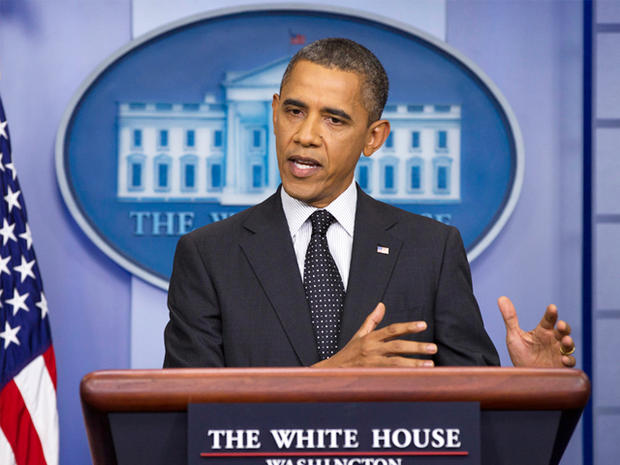Seeking control, campaigns turn to local press
(CBS News) With less than three months to go before the presidential election, President Obama and Mitt Romney have ramped up their campaign efforts to a feverish pace, jetting across the country for rallies and fundraisers and offering up interviews with regional outlets in key battleground states as they go.
There's a certain strategic benefit for presidential candidates in granting time to the regional press: Interviews with local affiliates tend to be featured more prominently on their broadcasts, and a candidate can tailor his or her message more closely to certain demographics.
In recent regional interviews, however, representatives for both candidates also appear to have sought some measure of control over the content of the discussion in ways they might not dare with members of the candidate's traveling press corps.
Earlier this week, Shaun Boyd, a reporter for the Denver CBS affiliate KCNC, was granted a one-on-one interview with Romney. In the broadcast, Boyd, who has gotten guff from Romney in the past for pressing him on issues like same-sex marriage and marijuana, mentioned that "the one stipulation to the interview" was that she not ask Romney about abortion or Missouri Senate candidate Todd Akin's recent comments about "legitimate rape."
Ohio TV station WHIO, another local station with which Romney did an interview, "told a reporter it would prefer Romney did not get questions about Todd Akin," according to Talking Points Memo.
According to TPM, two other stations with which Romney did interviews Thursday said they were not asked to avoid talk of Akin or abortion, and a Romney campaign official said "this is not how we operate" and that "the matter is being addressed." Boyd herself has since said the directive did not come from the national campaign staff, but rather a state-level staffer in Colorado.
Mr. Obama has also been accused of recent attempts to game local media coverage to his advantage: This week, he granted a handful of interviews to local reporters in California, Virginia, and Florida - two of whom suggested that they had been approached specifically to discuss sequestration, according to reports.
The Obama campaign told the Huffington Post it did not "dictate" the topic of coverage in Mr. Obama's interviews. But both incidents has raised questions about the frequency of such stipulations by national politicians on the campaign trail.
Roy Peter Clark, of the Poynter Institute, said the spate of recent incidents are indicative of the "deterioration" of contemporary political discourse.
Clark expressed "tremendous respect" for regional reporters (Poynter owns the Tampa Bay Times), but acknowledged a sense that "that individual reporters who are given of audiences with people in power might be more cautious, less likely to offend, and in some cases surely kind of caught up in the moment."
Candidates hoping to tightly control how they're conveyed in the media might be more likely to take advantage of that possibility, even as reporters assigned to cover them non-stop - the White House press corps, for instance, or embeds covering Romney -- complain that they are denied access.
"It's really sad," said Clark. "What you're getting in that [tightly controlled] environment is the most scripted forms of delivery of political messages."
Clark suggested that reporters confronted with similar stipulations in an interview opportunity follow a policy of "full disclosure."
"I think that revealing to audiences the ground rules or even the limitations under which you were forced to operate is a good thing. I think it can be done in a responsible way. It can be done without turning it into an accusation," he said. "I also think it's perfectly in the realm of public interest journalism not to violate the agreement but to test it. You wait until the end and you say you have a question about a controversial topic and you give the candidate a chance to address it."

